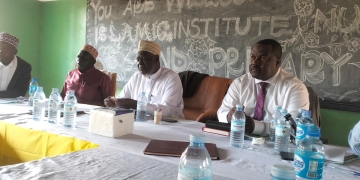
President Yoweri Museveni of Uganda has publicly expressed gratitude to traditional healers, commonly known as witches, for their significant role in the National Resistance Army’s victory in the 1980s.
Speaking at the 26th National Prayer Breakfast, Museveni shared a personal account of traditionalists performing rituals to ensure NRA’s success, including jumping over a slaughtered hen three times to guarantee triumph. This revelation is not unprecedented, as Museveni has previously confessed to practicing witchcraft during the liberation struggle.
At the time, Museveni cited the need to balance and unify his army amidst religious and traditional divisions. This blending of traditional practices with modern politics is characteristic of many African leaders, highlighting the complex relationship between witchcraft and African politics.
Witchcraft has deep roots in African history and culture, predating colonialism. The practice has evolved over time, influenced by colonialism’s impact on Africa’s politics, social structures, and economy. Today, witchcraft and superstition continue to influence decision-making in various African contexts.
Museveni’s remarks at the National Prayer Breakfast showcased Uganda’s diverse spiritual landscape. He emphasized the importance of unity and nation-building, urging Ugandans to reject religious sectarianism and promote togetherness. These values, he noted, are essential for the country’s progress.
First Lady Janet Museveni also addressed the gathering, expressing disappointment over Uganda’s high ranking on the corruption index. She called for collective action to restore transparency, integrity, and public trust.
The National Prayer Breakfast brought together notable figures, including Her Excellency Jewel Howard-Taylor, former Vice President of Liberia, Apostle Isi Igenegba from Nigeria, Speaker of Parliament Anita Among, and her Deputy Thomas Tayebwa.










